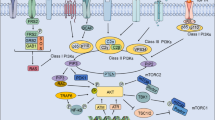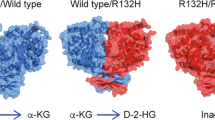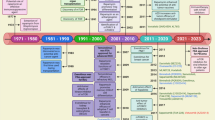Abstract
AMP-activated protein kinase (AMPK) serves as a fuel-sensing enzyme that is activated by binding of AMP and subsequent phophorylation by upstream kinases such as the tumor suppressor LKB1, when cells sense an increase in the ratio of AMP to ATP. Acute activation of AMPK stimulates fatty acid oxidation to generate more ATP and simultaneously inhibits ATP-consuming processes including fatty acid and protein syntheses, thereby preserving energy for acute cell-surviving program, whereas chronic activation leads to inhibition of cell growth. The goal of the present study is to explore the mechanisms by which AMPK regulates cell growth. Toward this end, we established stable cell lines by introducing a dominant-negative mutant of AMPK α1 subunit or its shRNA into the prostate cancer C4-2 cells and other cells, or wild type LKB1 into the lung adenocarcinoma A549 and breast MB-MDA-231 cancer cells, both of which lack functional LKB1. Our results showed that the inhibition of AMPK accelerated cell proliferation and promoted malignant behavior such as increased cell migration and anchorage-independent growth. This was associated with decreased G1 population, downregulation of p53 and p21, and upregulation of S6K, IGF-1 and IGF1R. Conversely, treatment of the C4-2 cells with 5-aminoimidazole-4-carboxamide 1-D-ribonucleoside (AICAR), a prototypical AMPK activator, caused opposite changes. In addition, our study using microarray and RT–PCR revealed that AMPK regulated gene expression involved in tumor cell growth and survival. Thus, our study provides novel insights into the mechanisms of AMPK action in cancer cells and presents AMPK as an ideal drug target for cancer therapy.
This is a preview of subscription content, access via your institution
Access options
Subscribe to this journal
Receive 50 print issues and online access
$259.00 per year
only $5.18 per issue
Buy this article
- Purchase on Springer Link
- Instant access to full article PDF
Prices may be subject to local taxes which are calculated during checkout




Similar content being viewed by others
References
Baldi P, Long AD . (2001). A Bayesian framework for the analysis of microarray expression data: regularized t-test and statistical inferences of gene changes. Bioinformatics 17: 509–519.
Barb D, Williams CJ, Neuwirth AK, Mantzoros CS . (2007). Adiponectin in relation to malignancies: a review of existing basic research and clinical evidence. Am J Clin Nutr 86: s858–s866.
Baron A, Migita T, Tang D, Loda M . (2004). Fatty acid synthase: a metabolic oncogene in prostate cancer? J Cell Biochem 91: 47–53.
Buzzai M, Jones RG, Amaravadi RK, Lum JJ, DeBerardinis RJ, Zhao F et al. (2007). Systemic treatment with the antidiabetic drug metformin selectively impairs p53-deficient tumor cell growth. Cancer Res 67: 6745–6752.
Calle EE, Rodriguez C, Walker-Thurmond K, Thun MJ . (2003). Overweight, obesity, and mortality from cancer in a prospectively studied cohort of US adults. N Engl J Med 348: 1625–1638.
Carling D . (2006). LKB1: a sweet side to Peutz-Jeghers syndrome? Trends Mol Med 12: 144–147.
Chang CK, Ulrich CM . (2003). Hyperinsulinaemia and hyperglycaemia: possible risk factors of colorectal cancer among diabetic patients. Diabetologia 46: 595–607.
De Schrijver E, Brusselmans K, Heyns W, Verhoeven G, Swinnen JV . (2003). RNA interference-mediated silencing of the fatty acid synthase gene attenuates growth and induces morphological changes and apoptosis of LNCaP prostate cancer cells. Cancer Res 63: 3799–3804.
Ding L, Getz G, Wheeler DA, Mardis ER, McLellan MD, Cibulskis K et al. (2008). Somatic mutations affect key pathways in lung adenocarcinoma. Nature 455: 1069–1075.
Dowling RJ, Zakikhani M, Fantus IG, Pollak M, Sonenberg N . (2007). Metformin inhibits mammalian target of rapamycin-dependent translation initiation in breast cancer cells. Cancer Res 67: 10804–10812.
Evans JM, Donnelly LA, Emslie-Smith AM, Alessi DR, Morris AD . (2005). Metformin and reduced risk of cancer in diabetic patients. BMJ 330: 1304–1305.
Gong YF, Srinivas RV, Fridland A . (1993). 5-Amino-4-imidazolecarboxamide riboside potentiates the metabolism and anti-human immunodeficiency virus activity of 2′,3′-dideoxyinosine. Mol Pharmacol 44: 30–36.
Grossmann ME, Nkhata KJ, Mizuno NK, Ray A, Cleary MP . (2008). Effects of adiponectin on breast cancer cell growth and signaling. Br J Cancer 98: 370–379.
Gurumurthy S, Hezel AF, Sahin E, Berger JH, Bosenberg MW, Bardeesy N . (2008). LKB1 deficiency sensitizes mice to carcinogen-induced tumorigenesis. Cancer Res 68: 55–63.
Gwinn DM, Shackelford DB, Egan DF, Mihaylova MM, Mery A, Vasquez DS et al. (2008). AMPK phosphorylation of raptor mediates a metabolic checkpoint. Mol Cell 30: 214–226.
Hardie DG . (2007). AMP-activated/SNF1 protein kinases: conserved guardians of cellular energy. Nat Rev Mol Cell Biol 8: 774–785.
He G, Sung YM, Digiovanni J, Fischer SM . (2006). Thiazolidinediones inhibit insulin-like growth factor-i-induced activation of p70S6 kinase and suppress insulin-like growth factor-I tumor-promoting activity. Cancer Res 66: 1873–1878.
Horman S, Vertommen D, Heath R, Neumann D, Mouton V, Woods A et al. (2006). Insulin antagonizes ischemia-induced Thr172 phosphorylation of AMP-activated protein kinase alpha-subunits in heart via hierarchical phosphorylation of Ser485/491. J Biol Chem 281: 5335–5340.
Huang X, Wullschleger S, Shpiro N, McGuire VA, Sakamoto K, Woods YL et al. (2008). Important role of the LKB1-AMPK pathway in suppressing tumorigenesis in PTEN-deficient mice. Biochem J 412: 211–221.
Ikediobi ON, Davies H, Bignell G, Edkins S, Stevens C, O'Meara S et al. (2006). Mutation analysis of 24 known cancer genes in the NCI-60 cell line set. Mol Cancer Ther 5: 2606–2612.
Inoki K, Ouyang H, Zhu T, Lindvall C, Wang Y, Zhang X et al. (2006). TSC2 integrates Wnt and energy signals via a coordinated phosphorylation by AMPK and GSK3 to regulate cell growth. Cell 126: 955–968.
Isakovic A, Harhaji L, Stevanovic D, Markovic Z, Sumarac-Dumanovic M, Starcevic V et al. (2007). Dual antiglioma action of metformin: cell cycle arrest and mitochondria-dependent apoptosis. Cell Mol Life Sci 64: 1290–1302.
Ji H, Ramsey MR, Hayes DN, Fan C, McNamara K, Kozlowski P et al. (2007). LKB1 modulates lung cancer differentiation and metastasis. Nature 448: 807–810.
Jimenez AI, Fernandez P, Dominguez O, Dopazo A, Sanchez-Cespedes M . (2003). Growth and molecular profile of lung cancer cells expressing ectopic LKB1: down-regulation of the phosphatidylinositol 3′-phosphate kinase/PTEN pathway. Cancer Res 63: 1382–1388.
Jones RG, Plas DR, Kubek S, Buzzai M, Mu J, Xu Y et al. (2005). AMP-activated protein kinase induces a p53-dependent metabolic checkpoint. Mol Cell 18: 283–293.
Klipper-Aurbach Y, Wasserman M, Braunspiegel-Weintrob N, Borstein D, Peleg S, Assa S et al. (1995). Mathematical formulae for the prediction of the residual beta cell function during the first two years of disease in children and adolescents with insulin-dependent diabetes mellitus. Med Hypotheses 45: 486–490.
Kuhajda FP . (2000). Fatty-acid synthase and human cancer: new perspectives on its role in tumor biology. Nutrition 16: 202–208.
Lee IM . (2003). Physical activity and cancer prevention--data from epidemiologic studies. Med Sci Sports Exerc 35: 1823–1827.
Lund Haheim L, Wisloff TF, Holme I, Nafstad P . (2006). Metabolic syndrome predicts prostate cancer in a cohort of middle-aged Norwegian men followed for 27 years. Am J Epidemiol 164: 769–774.
Luo Z, Saha AK, Xiang X, Ruderman NB . (2005). AMPK, the metabolic syndrome and cancer. Trends Pharmacol Sci 26: 69–76.
Majumder PK, Sellers WR . (2005). Akt-regulated pathways in prostate cancer. Oncogene 24: 7465–7474.
Manning G, Whyte DB, Martinez R, Hunter T, Sudarsanam S . (2002). The protein kinase complement of the human genome. Science 298: 1912–1934.
Ngo TH, Barnard RJ, Leung PS, Cohen P, Aronson WJ . (2003). Insulin-like growth factor I (IGF-I) and IGF binding protein-1 modulate prostate cancer cell growth and apoptosis: possible mediators for the effects of diet and exercise on cancer cell survival. Endocrinology 144: 2319–2324.
Pasquale EB . (2008). Eph-ephrin bidirectional signaling in physiology and disease. Cell 133: 38–52.
Rattan R, Giri S, Singh AK, Singh I . (2005). 5-Aminoimidazole-4-carboxamide-1-beta-D-ribofuranoside inhibits cancer cell proliferation in vitro and in vivo via AMP-activated protein kinase. J Biol Chem 280: 39582–39593.
Sachdev D, Yee D . (2007). Disrupting insulin-like growth factor signaling as a potential cancer therapy. Mol Cancer Ther 6: 1–12.
Singh AP, Bafna S, Chaudhary K, Venkatraman G, Smith L, Eudy JD et al. (2008). Genome-wide expression profiling reveals transcriptomic variation and perturbed gene networks in androgen-dependent and androgen-independent prostate cancer cells. Cancer Lett 259: 28–38.
Su GH, Hruban RH, Bansal RK, Bova GS, Tang DJ, Shekher MC et al. (1999). Germline and somatic mutations of the STK11/LKB1 Peutz-Jeghers gene in pancreatic and biliary cancers. Am J Pathol 154: 1835–1840.
Thupari JN, Pinn ML, Kuhajda FP . (2001). Fatty acid synthase inhibition in human breast cancer cells leads to malonyl-CoA-induced inhibition of fatty acid oxidation and cytotoxicity. Biochem Biophys Res Commun 285: 217–223.
Wu X, Wakefield JK, Liu H, Xiao H, Kralovics R, Prchal JT et al. (2000). Development of a novel trans-lentiviral vector that affords predictable safety. Mol Ther 2: 47–55.
Xiang X, Saha AK, Wen R, Ruderman NB, Luo Z . (2004). AMP-activated protein kinase activators can inhibit the growth of prostate cancer cells by multiple mechanisms. Biochem Biophys Res Commun 321: 161–167.
Acknowledgements
This project is supported by NIH R01 Grants, CA118918 and GM 057959 (to Z Luo). We thank Dr David Carling for providing us the cDNA construct for the dominant-negative mutant of AMPKα1 subunit.
Author information
Authors and Affiliations
Corresponding author
Rights and permissions
About this article
Cite this article
Zhou, J., Huang, W., Tao, R. et al. Inactivation of AMPK alters gene expression and promotes growth of prostate cancer cells. Oncogene 28, 1993–2002 (2009). https://doi.org/10.1038/onc.2009.63
Received:
Revised:
Accepted:
Published:
Issue Date:
DOI: https://doi.org/10.1038/onc.2009.63
Keywords
This article is cited by
-
Regulation and role of CAMKK2 in prostate cancer
Nature Reviews Urology (2022)
-
AMPK promotes antitumor immunity by downregulating PD-1 in regulatory T cells via the HMGCR/p38 signaling pathway
Molecular Cancer (2021)
-
Involvement of AMP-activated protein kinase and Death Receptor 5 in TRAIL-Berberine-induced apoptosis of cancer cells
Scientific Reports (2018)
-
Translational regulation in the anoxic turtle, Trachemys scripta elegans
Molecular and Cellular Biochemistry (2018)
-
A spatiotemporal hypothesis for the regulation, role, and targeting of AMPK in prostate cancer
Nature Reviews Urology (2017)



